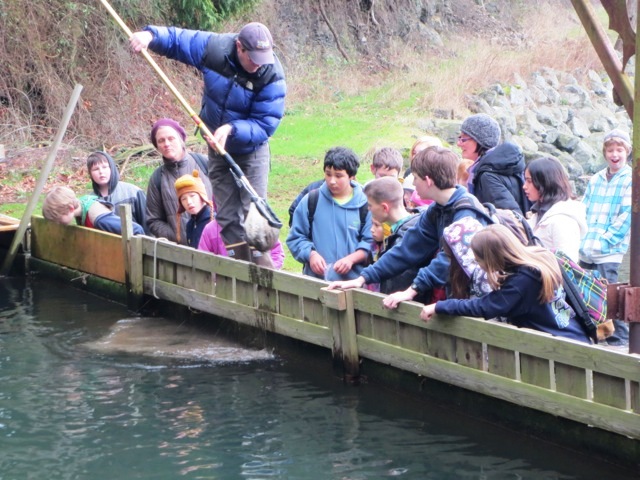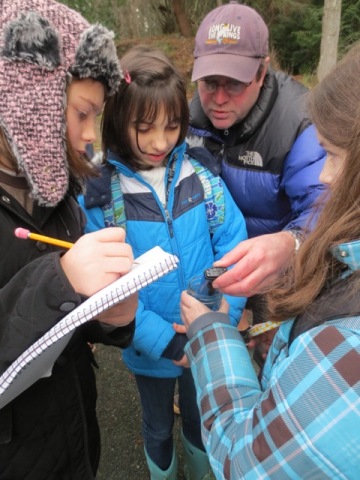By Susan Stoltz
Thanks to a private donation, Paula Towne’s 6th grade class [from Orcas Island Elementary School] was able to take this year’s science curriculum out of the classroom and into the field.
Students participated in an extensive study of watersheds and forest woodlands to understand the role nitrogen plays in the health and productivity of our local ecosystems. Their research began with a five day study at Olympic National Park where they compared the health of the recently un-dammed Elwha River to that of a pristine creek located within the park.
In their research they inventoried macro-invertebrates as well as compared pH, nitrogen and oxygen levels of the water.
On coming back to Orcas, their studies continued with an analysis of the role fungi plays in nitrogen production and forest ecology. They discovered that not only do plants need fungi to assimilate nitrogen from the soil and air, but that fungi are capable of decomposing just about anything, including toxic pollutants.
They ended their study with a trip to our local watershed, Glenwood Springs, here on Orcas Island. Working with Glenwood’s Mike McConnell, they analyzed the hatchery’s soil to understand how the introduction of a salmon run might change nitrogen levels of the soil, then to see if increased nitrogen levels effect the surrounding woods.
Their work is part of an ongoing study to help all of us appreciate the fine balance that makes the Pacific Northwest so unique. None of this would have been possible without the help of our community.
Thank you school supporters!
**If you are reading theOrcasonian for free, thank your fellow islanders. If you would like to support theOrcasonian CLICK HERE to set your modestly-priced, voluntary subscription. Otherwise, no worries; we’re happy to share with you.**









